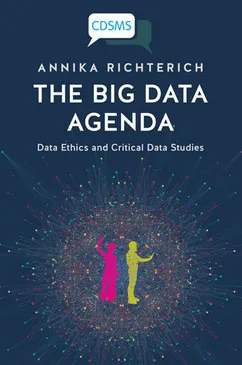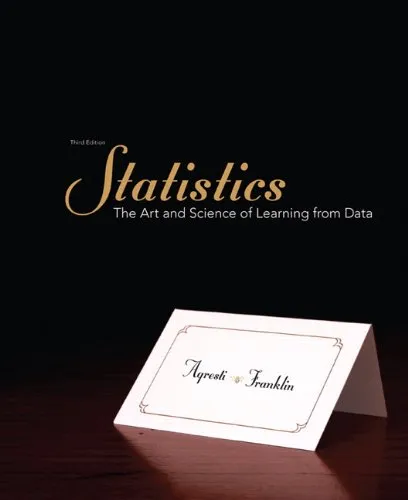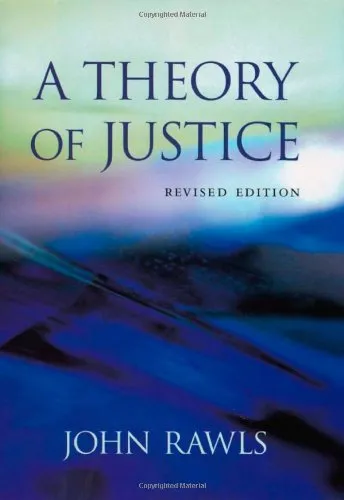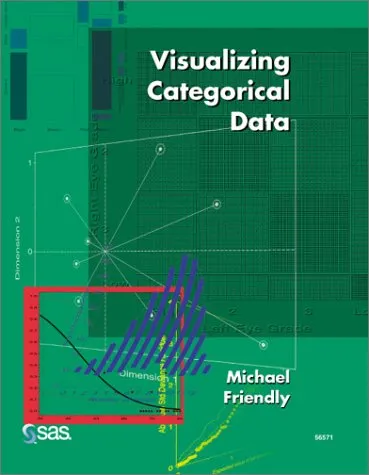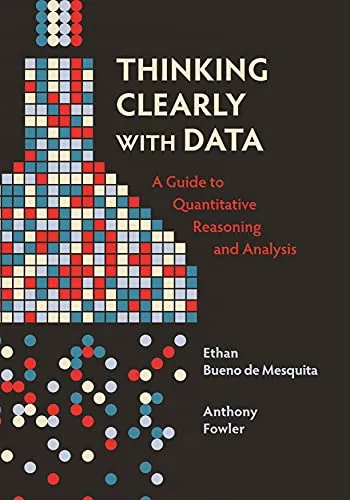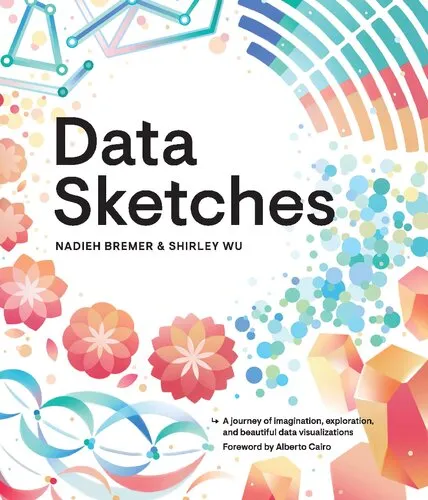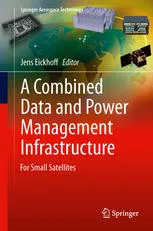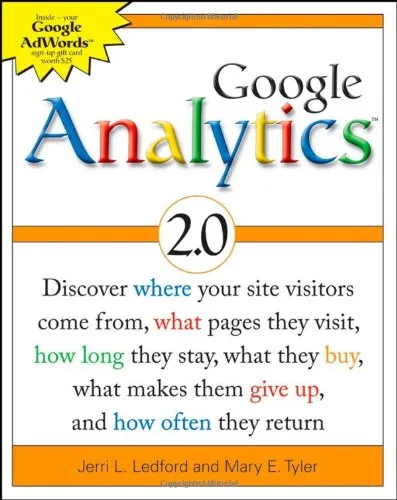The Big Data Agenda: Data Ethics and Critical Data Studies
4.0
بر اساس نظر کاربران

شما میتونید سوالاتتون در باره کتاب رو از هوش مصنوعیش بعد از ورود بپرسید
هر دانلود یا پرسش از هوش مصنوعی 2 امتیاز لازم دارد، برای بدست آوردن امتیاز رایگان، به صفحه ی راهنمای امتیازات سر بزنید و یک سری کار ارزشمند انجام بدینکتاب های مرتبط:
معرفی کتاب "The Big Data Agenda: Data Ethics and Critical Data Studies"
کتاب "The Big Data Agenda: Data Ethics and Critical Data Studies" توسط آنیکا ریشتریش نوشته شده و موضوعاتی از جمله اخلاق داده، مطالعات انتقادی دادهها و تأثیر فناوریهای کلان داده را بررسی میکند. این کتاب برای کسانی که علاقهمند به درک عمیق مسائل پیچیده مرتبط با کلان دادهها (Big Data)، آثار اجتماعی آنها و شیوههای استفاده مسئولانه از دادهها هستند، یک منبع ارزشمند محسوب میشود.
خلاصه مفصل کتاب
"The Big Data Agenda" به بررسی ترکیبی از مسائل سیاسی، اخلاقی و اجتماعی که در نتیجه ظهور فنآوریهای کلان داده رخ میدهند، میپردازد. در کتاب، نویسنده بیان میکند که استفاده از دادههای بزرگ نباید صرفاً به عنوان تکنیکی خنثی و غیرجانبدارانه دیده شود بلکه باید به روش انتقادی به شیوههای استخراج، جمعآوری و پردازش آنها اندیشید.
آنیکا ریشتریش تحلیل میکند که چگونه فرآیندهای مدلسازی داده، الگوریتمها و فناوریهای تحلیل داده به شیوههای ناخواسته بر عدالت اجتماعی، شفافیت و برابری تأثیر میگذارند. این اثر آموزشی همچنین به چالشهای اخلاقی مرتبط با استفاده از Big Data در حوزههایی چون پزشکی، آموزش، و سیاستگذاری میپردازد و مخاطبان را تشویق میکند که از ابزارهای فناوری با دیدی انتقادی استفاده کنند.
این کتاب در چهارچوب مطالعات انتقادی دادهها (Critical Data Studies) نوشته شده که هدف آن ارزیابی و بازنگری فرایندهای نهادی مرتبط با استفاده از دادههای انبوه است. نویسنده از دید چندرشتهای (interdisciplinary) به این موضوع پرداخته و مسائل مختلف مرتبط با قدرت، اخلاق، و شفافیت را بررسی میکند.
نکات کلیدی کتاب
- کلان دادهها فقط ابزاری فناورانه نیستند؛ بلکه حامل ارزشها و سوگیریهای اجتماعی و سیاسی هستند.
- استفاده بهینه از دادهها نیازمند رویکردی انتقادی و سازگار با مفاهیم عدالت و اخلاق است.
- ارزیابی فرآیندهای تجزیه و تحلیل دادهها باید مسائل مرتبط با شفافیت و حاکمیت دادهها را در نظر بگیرد.
- لازم است مؤسسات مختلف نسبت به پیامدهای ناخواسته استفاده از دادههای خودآگاه باشند.
نقل قولهای معروف از کتاب
"Big Data does not exist in a vacuum but is deeply entangled with societal structures, power relations, and historical contexts."
"Critical engagement with data ethics requires us to challenge and rethink the assumptions and values embedded within our data practices."
چرا این کتاب اهمیت دارد؟
با گسترش روزافزون استفاده از فنآوریهای دادهمحور، از شرکتهای بزرگ تجاری تا نهادهای دولتی، نیاز به بررسی انتقادی و اخلاقمحور دادهها ضروریتر از همیشه است. کتاب "The Big Data Agenda" نه تنها به نمایش ریسکها و فرصتهای کلان داده میپردازد بلکه به خوانندگان کمک میکند تا ابزارهای انتقادی لازم برای تعامل سازنده با دادهها را در اختیار داشته باشند.
مطالعه این کتاب به سیاستگذاران، پژوهشگران، متخصصان فناوری و حتی عموم جامعه کمک میکند تا نقش اخلاق و مسئولیتپذیری را در آینده استفاده از دادهها بهتر درک کنند. این اثر بهعنوان یکی از منابع کلیدی در حوزه مطالعات انتقادی دادهها شناخته شده و میتواند در تصمیمگیریهای هوشمندانهتر درباره مسائل دادهمحور بسیار اثرگذار باشد.
Introduction to "The Big Data Agenda: Data Ethics and Critical Data Studies"
The world today is being shaped by the overwhelming influence of big data. From commerce to healthcare, public policy to personal relationships, data-driven technologies are embedded in the fabric of modern society. My book, The Big Data Agenda: Data Ethics and Critical Data Studies, delves into the ethical and societal challenges posed by this data-centric era, encouraging readers to critically examine the practices, implications, and consequences of big data technologies.
In an era dominated by datafication, where virtually every human activity can be captured, stored, and analyzed, the ethical stakes are higher than ever. This book provides readers with a nuanced understanding of the critical issues that underpin big data practices, while also drawing insights from the emerging field of Critical Data Studies. Both accessible and thought-provoking, this book acts as a guide for scholars, researchers, and anyone interested in understanding the intersections of data ethics and critical theory.
Join me as I unpack the societal implications of data technologies and discuss why a critical perspective is essential for navigating the big data landscape.
Detailed Summary of the Book
At its core, The Big Data Agenda examines how data-driven practices impact both society and individuals ethically, critically interrogating the promises and pitfalls of these technologies.
The book is structured around key themes in data ethics and Critical Data Studies. It begins with an exploration of how big data is conceptualized and the rhetoric surrounding its seemingly boundless potential. It then shifts focus to the challenges and risks associated with data technologies, including privacy concerns, bias in data-driven decision-making, and the often-invisible corporate and state surveillance mechanisms lurking behind them.
Importantly, the book does not merely critique; it also suggests ways of fostering ethical practices in data science and the development of responsible technologies. By weaving together theoretical analyses with real-world case studies, this book aims to enable readers to critically engage with the role of big data in today’s society—and take part in discussions for a more equitable and transparent data future.
Key Takeaways
- Understand the foundational concepts behind big data and data ethics in a comprehensive yet accessible way.
- Learn how data power structures influence society and shape human relationships.
- Identify practical ways to address and mitigate ethical and societal challenges posed by big data technologies.
- Gain a critical perspective on automation, algorithms, and decision-making processes in data-driven systems.
- Explore how Critical Data Studies can provide the necessary scholarly framework for examining data's impact beyond surface-level discussions.
Famous Quotes from the Book
Here are some striking quotes from The Big Data Agenda that highlight the intellectual essence of the book:
"The proliferation of data-driven technologies has redefined the ways in which knowledge is produced, shared, and acted upon—but this redefinition is neither neutral nor unproblematic."
"Big data is often celebrated for its transformative power in society, but it is equally important to scrutinize the systems of control and inequalities that it perpetuates."
"Ethical responsibility in the age of big data requires more than technical fixes; it necessitates critical reflection about what kind of society we want to create."
Why This Book Matters
In a world increasingly governed by algorithms and data analytics, why should you care about reading The Big Data Agenda? The answer lies in understanding the far-reaching consequences of data practices.
This book matters because it challenges readers to think beyond the conveniences and efficiencies promoted by data technologies. It pushes for accountability in a field often cloaked in complexity and jargon. By offering a comprehensive yet critical examination of big data, the book equips readers with the tools to identify and oppose harmful trends such as bias, inequality, and data misuse.
Moreover, it emphasizes the importance of fostering public dialogue and academic inquiry into how we interact with, regulate, and shape big data systems. In bridging the gap between technical expertise and ethical reflection, The Big Data Agenda serves as an essential resource for anyone interested in understanding—and reshaping—the role of data in our lives.
دانلود رایگان مستقیم
شما میتونید سوالاتتون در باره کتاب رو از هوش مصنوعیش بعد از ورود بپرسید
دسترسی به کتابها از طریق پلتفرمهای قانونی و کتابخانههای عمومی نه تنها از حقوق نویسندگان و ناشران حمایت میکند، بلکه به پایداری فرهنگ کتابخوانی نیز کمک میرساند. پیش از دانلود، لحظهای به بررسی این گزینهها فکر کنید.
این کتاب رو در پلتفرم های دیگه ببینید
WorldCat به شما کمک میکنه تا کتاب ها رو در کتابخانه های سراسر دنیا پیدا کنید
امتیازها، نظرات تخصصی و صحبت ها درباره کتاب را در Goodreads ببینید
کتابهای کمیاب یا دست دوم را در AbeBooks پیدا کنید و بخرید
1332
بازدید4.0
امتیاز0
نظر98%
رضایتنظرات:
4.0
بر اساس 0 نظر کاربران
Questions & Answers
Ask questions about this book or help others by answering
No questions yet. Be the first to ask!
